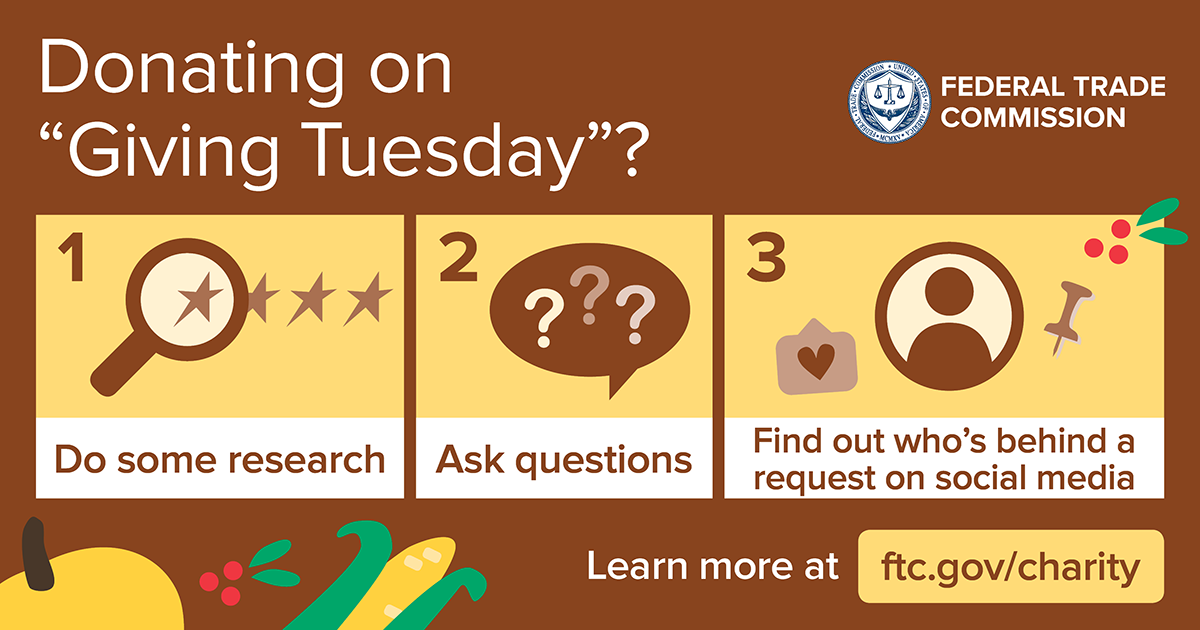Giving Tuesday is a great time to show your gratitude by donating to help others. But you don’t want to give money to a fake charity or scammer (any day of the week).
Before you donate this Giving Tuesday ― and anytime you’re asked to give to charity:
- Research the cause or the organization. Search online for the name of the organization or cause with words like “review,” “scam,” or “complaint.” See if others have had good or bad experiences with the charity. Check out what charity watchdog groups say about that organization.
- Know that it’s ok to ask questions. If the request for a donation is over the phone, the caller should be able to answer critical questions. For example, how much of your donation will go to the program you want to help? Is the caller raising funds for a charity or for a Political Action Committee (PAC)? (Donations to PACs are NOT tax deductible.)
- Slow down. You don’t have to give over the phone, and anybody who pressures you might be someone you want to avoid giving to.
- Know who’s making the request. Don’t assume a request to donate is legitimate because a friend posted it on social media. Your friend might not personally know the charity or how it spends money. When you do your own research, double-check the exact name of the organization. Scammers will pick names or use website addresses that sound very similar to legitimate well-known charities.

This Giving Tuesday, and in this season of giving, consider starting with a plan for year-end donations. That way, you have time to do research, make your gifts, and tell anyone who asks that you’ve already given. Learn more at ftc.gov/charity.
If you see a charity scam, report it at ReportFraud.ftc.gov and to your state charity regulator.
Topics
Scams
